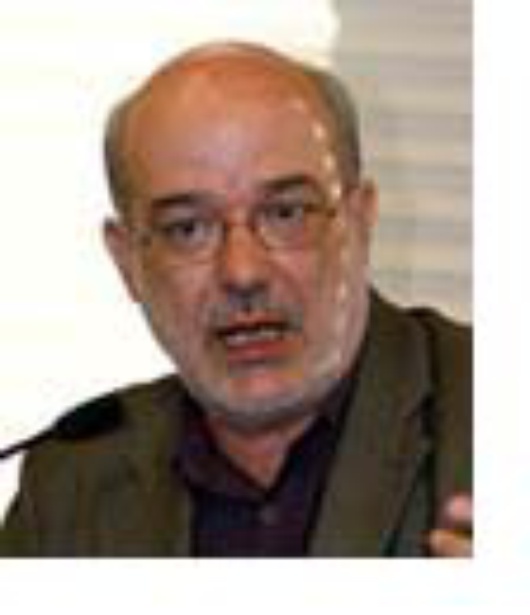The European debate goes digital
Published on
Translation by:
 carolyn tyler
carolyn tyler
All over Europe, people are debating topics such as the constitution and enlargement. The online community is analysing the European community.

Italy, from the small screen to the web
In 1987, Beppe Grillo, an Italian comedian, was fired by Rai, the state television channel, after a television programme was aired in which the comedian questioned the honesty of the then prime minister Craxi, six years after he was found guilty of corruption.
 After years of silence Grillo is now back in the public domain; this time through the use of blogs. His books have become bestsellers and his blog, awarded on of the European Heroes 2005 prizes by Time magazine, is the most visited site in Italy. Challenged, intrigued or awakened by Grillo’s posts, Italians are writing to give him advice and to ask for clarifications in legal or business matters. For example, Alessandro Costanzo, who recently graduated with a thesis on the European constitution, explains that “the constitution is not a constitution but an international agreement between states. I was disappointed by the failure in France and Holland but it wasn’t a surprise; too many things don’t work out in Europe, beginning with the very idea of union, on which there are conflicting opinions, particularly amongst different countries.” In a short space of time, Grillo’s blog has become a social phenomenon that provides people with an efficient tool for information.
After years of silence Grillo is now back in the public domain; this time through the use of blogs. His books have become bestsellers and his blog, awarded on of the European Heroes 2005 prizes by Time magazine, is the most visited site in Italy. Challenged, intrigued or awakened by Grillo’s posts, Italians are writing to give him advice and to ask for clarifications in legal or business matters. For example, Alessandro Costanzo, who recently graduated with a thesis on the European constitution, explains that “the constitution is not a constitution but an international agreement between states. I was disappointed by the failure in France and Holland but it wasn’t a surprise; too many things don’t work out in Europe, beginning with the very idea of union, on which there are conflicting opinions, particularly amongst different countries.” In a short space of time, Grillo’s blog has become a social phenomenon that provides people with an efficient tool for information.
From Holland comes Eurologie
 Eurologie, alias Atilla Arda, is the author of a Dutch blog which closely follows the political life of the European Union. Its enthusiasm gives life to a debate on the political community through the use of posts about current events. Born into a Turkish family but raised in Holland, Eurologie observes that “many European politicians are trying to move forward with the project for a European constitution” but notes that “the European Commission is only listening to the fifty percent of Europeans who think that Brussels is inefficient and technocratic.”
Eurologie, alias Atilla Arda, is the author of a Dutch blog which closely follows the political life of the European Union. Its enthusiasm gives life to a debate on the political community through the use of posts about current events. Born into a Turkish family but raised in Holland, Eurologie observes that “many European politicians are trying to move forward with the project for a European constitution” but notes that “the European Commission is only listening to the fifty percent of Europeans who think that Brussels is inefficient and technocratic.”
Global capitalism speaks Swedish
 The favourite blog of the readers of the magazine Internetworld is written by the Swedish writer Johan Norberg. Norberg, who is both the author of the bestseller In defence of global capitalism, which has been translated into 24 languages, and the director of the Timbro think-tank based in Stockholm, writes several posts per day on current events, the economy and the European community. The defender of globalisation and capitalism regularly puts European themes at the centre of the debate. “The European Parliament risks putting the distribution of wealth ahead of the creation of resources,” warns Norberg, highlighting the EU’s preoccupation with excessively protectionist and anti-liberal ideas.
The favourite blog of the readers of the magazine Internetworld is written by the Swedish writer Johan Norberg. Norberg, who is both the author of the bestseller In defence of global capitalism, which has been translated into 24 languages, and the director of the Timbro think-tank based in Stockholm, writes several posts per day on current events, the economy and the European community. The defender of globalisation and capitalism regularly puts European themes at the centre of the debate. “The European Parliament risks putting the distribution of wealth ahead of the creation of resources,” warns Norberg, highlighting the EU’s preoccupation with excessively protectionist and anti-liberal ideas.
The debate in Spain
 The brand-new Spanish blog, BlogEuropa.eu, represents a new space for debate and information, where ideas for a united Europe can be created. The website is written in a number of languages which allows for a transnational debate. The founders of the project and the authors of the content are made up of nine university professors from Madrid, specializing in law and economics. The last few posts have tackled the necessity of a new European media, as well as independence for Montenegro, which was considered “too expensive for the EU and the cause of tension between member states.” These states, the largest ones in particular, “view with concern a hypothetical enlargement of the EU to 35 or more countries and where only 6 would make up 75% of the population. But their hands will be tied just like Gulliver’s were in Lilliput.”
The brand-new Spanish blog, BlogEuropa.eu, represents a new space for debate and information, where ideas for a united Europe can be created. The website is written in a number of languages which allows for a transnational debate. The founders of the project and the authors of the content are made up of nine university professors from Madrid, specializing in law and economics. The last few posts have tackled the necessity of a new European media, as well as independence for Montenegro, which was considered “too expensive for the EU and the cause of tension between member states.” These states, the largest ones in particular, “view with concern a hypothetical enlargement of the EU to 35 or more countries and where only 6 would make up 75% of the population. But their hands will be tied just like Gulliver’s were in Lilliput.”
Continuing in Catalonia
The response to the Montenegro question comes from the Catalan blog by Professor Josep-Maria Terricabras. Anyone can participate and give their opinions on the famous philosopher’s reflections. On the subject of independence for Montenegro Terricabas writes “the Popular Party argues that Catalonia ‘balkanizes’ Spain and Javier Solana (High Representative for the Common Foreign and Security Policy, author’s note) claims that anyone who agrees with this analogy is suffering from a delirium tremens.” But this worry stems from the fact that “one day Catalonia will also be able to choose if it wants its independence and if Madrid and Brussels have even the slightest twinge of democratic conscience, they will have to agree to it.” The dialogue continues.
Copyright: Beppe Grillo (Indymedia), Atilla Arda (Arda), Johan Norberg (Kristian Karlsson), Josè M. de Areilza (BlogEuropa.eu), Josep-Maria Terricabras (www.terricabras-filosofia.info).
Translated from Da Roma a Stoccolma il dibattito europeo a colpi di blog


